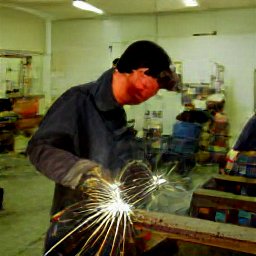HVAC repair school can be a great way to learn about the inner workings of heating, ventilation, and air conditioning systems. If you’re looking for a career in the HVAC industry, or you just want to be able to fix your own home’s HVAC system, attending an HVAC repair school can be a great option.
Most HVAC repair schools offer programs that last from six to twelve months. During this time, you’ll learn about the different parts of an HVAC system, how to diagnose and fix common problems, and how to safely work with heating and cooling systems. You’ll also learn about the business side of the HVAC industry, so you can start your own HVAC business or work as a contractor.

HVAC repair schools can be expensive, but they can also be a great investment. Not only will you learn about one of the most important systems in your home, but you’ll also learn about a career that is in high demand. With an HVAC repair school under your belt, you’ll be able to start your career with confidence and know-how.
HVAC stands for heating, ventilation, and air conditioning. It is a system used to control the temperature and humidity of a building. HVAC systems can be powered by electricity, natural gas, propane, or oil.
There are many different types of HVAC systems. The most common type is a split system. A split system has an outdoor unit and an indoor unit. The outdoor unit is used to cool and heat the air. The indoor unit is used to circulate the air and control the temperature and humidity.
Other common types of HVAC systems are ductless mini splits and VRF systems. Ductless mini splits have two units: an indoor unit and an outdoor unit. The indoor unit is used to circulate the air and control the temperature and humidity. The outdoor unit is used to cool and heat the air. VRF systems have multiple indoor units and one outdoor unit. The outdoor unit is used to cool and heat the air. The indoor units are used to circulate the air and control the temperature and humidity.
If you are thinking about installing a new HVAC system or upgrading your current system, it is important to consider the size of the system. The size of the system will depend on the size of your home, the climate, and the type of system you are installing.
It is also important to consider the type of system you are installing. Some systems are more energy efficient than others. You should also consider the cost of installation and maintenance of the system.
If you are thinking about installing a new HVAC system or upgrading your current system, contact a licensed contractor for more information.